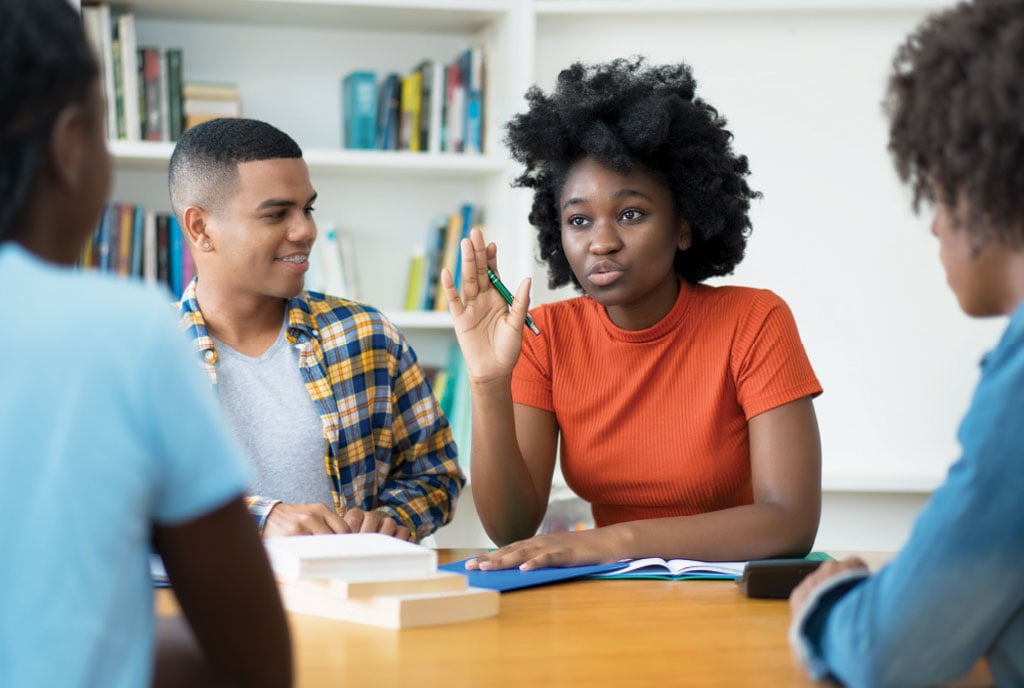Prime
Students in mental health awareness

Many young people are distressed and yet it has not been addressed in many institutions. PHOTO/COURTESY
What you need to know:
- One of the causes of death among 15-19 year olds was suicide. It is said that during the lockdown, children experienced a lot that they did not get a chance to recover from.
- And yet most have not gotten the needed awareness on mental health.
According to statistics from Strong Minds Uganda, a social enterprise that treats depression among women and adolescents, there is a growing concern for the mental health of young people in Uganda.
The study revealed; “We have treated more than 160,000 women and adolescents, of which 30 per cent of women report their children have fewer school absences.”
The report further proved a hike in the populations that have received health response which suggests an overwhelming number of individuals struggling with mental health.
“Our program has supported the treatment of some of the 14.7 million people that were accessed.”
These findings create the need for inclusivity while dealing with mental health which should be everyone’s responsibility.
The celebrations
It was all merry at the annual celebrations where students, from various institutions, partners and well-wishers took part in the activities of the day.
Among these institutions is; Kyambogo College, Gulu thrive team, you belong Uganda, Kyambogo University guidance and counselling unit.
The event which happened at the Kyambogo University graduation grounds was organised by the Ministry of Health, mental health department.
“This initiative is believed to create awareness among students following the issues entailing mental health of young people who are expected to be the most pro-active population,” says Dr. Asfa Lukwata, the Assistant commissioner Health services, mental health at the Ministry.
Dr. Lukwata commenced the day by flag shipping the mental health walk together with a band from the University grounds which was followed by Zumba dances to Lingala tunes.
The guests then savoured away on some refreshments and enjoyed a good pictorial session with a frame highlight that promoted mental health awareness.
There were items on sale crafted by beneficiaries of Peer nation, a mental health support system, and book sales as tools for treatment of mental health, poem and presentations.
A student of Mukono Parents High school under you belong Uganda Youth Consult Group recited a poem entitled, “We need you.”
The poem exposed the weak systems around mental health care and advocated for support for accessible mental health care.
To crown the day, victims of mental illnesses shared their experiences battling this disease.
Jackie Nasuli shared her journey struggling with bipolar disease. She says; “I am not ashamed to share my story struggling with mental illness for 20 years as this does not make me abnormal but it is a fight I put up against a disease that has a cure. I am glad my story through my book can help others struggling with the same.”
Another victim from Arua only identified as David shared his ordeal struggling with depression which was not societally recognised in the Lugbara culture as a male was not expected to just break down.
Selection
Dinah Kirabo, a counsellor at Uganda Counselling Association lists some of the criteria as to how some of these students were selected to engage in the celebrations.
She explains; some of these students are either dealing with mental illness, recovery or even active to pick some useful information and carry it back to their schools. All these groups are capable of advocating for mental health awareness in their schools.
These identified students she adds are taken through mental health talks to increase their knowledge and counselling skills in order for them to extend awareness throughout their schools and communities.
Africa Byaruhanga a second year student at Kyambogo University is a mentor at the University guidance and counselling unit.
He shares; “I realised my passion in counselling which directed me to join this unit. I have been able to use this platform to recognise distress among fellow students, especially first year students who have been conned of tuition or need guidance around the campus.”
According to Kirabo there has been impactful change towards the end goal in student selection and involvement.
“There has been a growing urge in self-realisation and actual seeking for professional help among students as they ably identify and acknowledge to be mentally unwell or even identify the struggle among their peers and lead them towards counsellors,” she says.
The counsellor also envisions for a population of youth that has low levels of drug abuse and suicidal ideations given such continuous referrals from support groups in schools.
Experiences
Benitah Namawejje 19 years shares her struggle with emotional breakdown after her mother left her with another family in order to attend greener pastures overseas.
“I was left behind with inconsiderable individuals who did not extend enough love and care towards me. This resulted in frustration as I struggled to cope with the situation and could not finish my meals.”
The senior six student was fortunate to have a friend whom she confided in and got some gainful counsel from him.
“I advise victims to avoid locking themselves in and find someone to open up to in order to release their fears and pains because a problem shared is a problem solved.
In attendance, Namwejje picked a leaf from the celebrations.
“This program has enriched me with my passion in counselling others as I learn that my weak point is not the end of the road and to never look at any disability as inability,” she shares.
16-year-old Alvah Jason Notwari experienced his turning point from a bad habit after the loss of his friend.
“We shared in the habit and I watched him lose himself till he lost his life which scared me greatly. I became tormented and suffered unrest,” he recounts.
The senior one student reveals sharing his ordeal indirectly with his busy mother who was not responsive to his expectations.
“I was lucky to meet counsellors at my school who helped me through my recovery journey. Regardless of how I struggled with relapse, I had friends and counselors that supported me to completely recover,” he shares.
Notwari urges young people struggling with bad habits to understand the possible triggers that delay their recovery and resist them.
“Always keep a company that is supportive of your recovery process and always have an initiative to change for the better as the struggle starts with oneself.”
Way forward
According to Gladys Ananora, a counsellor at Kyambogo University the University has registered suicidal ideations this last semester.
“We received enormous referrals from faculties and have identified depression among students sprouting from drug addictions, stress of academic pressures since Covid-19 financial constraints and family related issues,” she reveals.
The counsellor enlists initiatives to avert this distress.
She says; Suicidal awareness, mentorship, strong minds training, making addiction choices, public lecturers, research and publications have enabled the unit to move a step ahead in fighting mental distress.
Dr. Lukwata from the Ministry launched the mental health strategic plan citing the need to address this distress holistically.
“As we envision a Ugandan population free of mental illnesses, we need to address mental health and illness by providing responsive services at all levels in all situations such as schools, workplaces, among others,” she suggests.
The commissioner also guides on the need to enhance the capacity of health workers in ensuring right diagnosis and laws aimed at raising awareness.
Professor Musisi Seggane a psychologist at Entebbe Lakeside Hospital applauds the recent participation and involvement in the mental health campaign.
“Twenty years ago there was a different response from now towards mental health as it was treated as a traditional issue or cultural calamity,” he expresses.
The professor urges parents to be more present in the lives of their children and schools to create environments that avert such mental struggles.
He tips; “Schools should have spacious dormitory structures especially amidst such Ebola outbreaks and introduce play in schools to avoid mental breakdown from long hours of study.”
Seggane also recommends schools to include mental health programs for adolescents to encourage a healthy environment for their mental well-being.
Jamila Oluka of strong minds Uganda says the enterprise partners with the Ministry of health to increase mental health awareness in schools.
“We ensure that mental health hour is integrated in schools once a week and develop a training manual for mental health awareness and treatment to be shared in schools.”
Oluka adds that they have pushed for support in the distribution of mental health education and care circular letters in education institutions.





